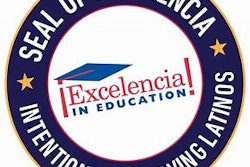In its first large-scale effort to draw attention from the highest level of government to Hispanic higher education issues, the Hispanic Association of Colleges and Universities (HACU) this summer asked all of the announced presidential candidates what they would do to provide greater higher education opportunities for Hispanics. Three Democratic candidates have responded so far.
HACU sent the candidates a detailed paper titled “Platform Issues and Recommendations for Presidential Candidates in 2008.” The candidates were asked to reply by July 28. At press time, Sen. Barack Obama of Ill., Sen. Christopher Dodd of Conn. and former Sen. John Edwards of N.C. had responded.
This platform paper was the first such large-scale effort for HACU, whose members include approximately 400 Hispanic-serving institutions (HSIs) in the U.S. which enroll half of all Hispanic college students. In 2000, the organization reached out to the nominees prior to the general election asking for feedback on the question of how to enhance the standing of HSIs in federal legislation and support. For the 2008 election, the Governing Board decided to broaden the discussion. HACU will follow up with the remaining candidates and give them until Sept. 7 to submit their feedback.
As a non-partisan, non-profit organization, HACU will not make any candidate endorsements. But the organization can comment on what individual candidates say about HACU’s issues and then let members form their own opinions, said Dr. Antonio Flores, president and CEO of HACU.
Among the issues identified are the federal underfunding of HSIs; the under-representation of Hispanics in the federal labor force; and the lack of adequate federal support for Hispanic-serving school districts. Recommendations included a comprehensive study on how to close the HSI federal funding gaps; establishment of a Presidential Advisory Board on HSIs; an Executive Order for all federal agencies to commit to closing Hispanic employment gaps at all levels; and for the president and Congress to work closely to enhance federal legislation and funding for PK – 12 to create higher education possibilities.
Obama focused in on that last recommendation. “Educators need to be trained to identify the indicators that students may be at risk for dropping out and to intervene early,” he wrote. He also proposed expanding mentoring and tutoring programs. He said he is currently working to increase the maximum Pell Grant to $5,400.














